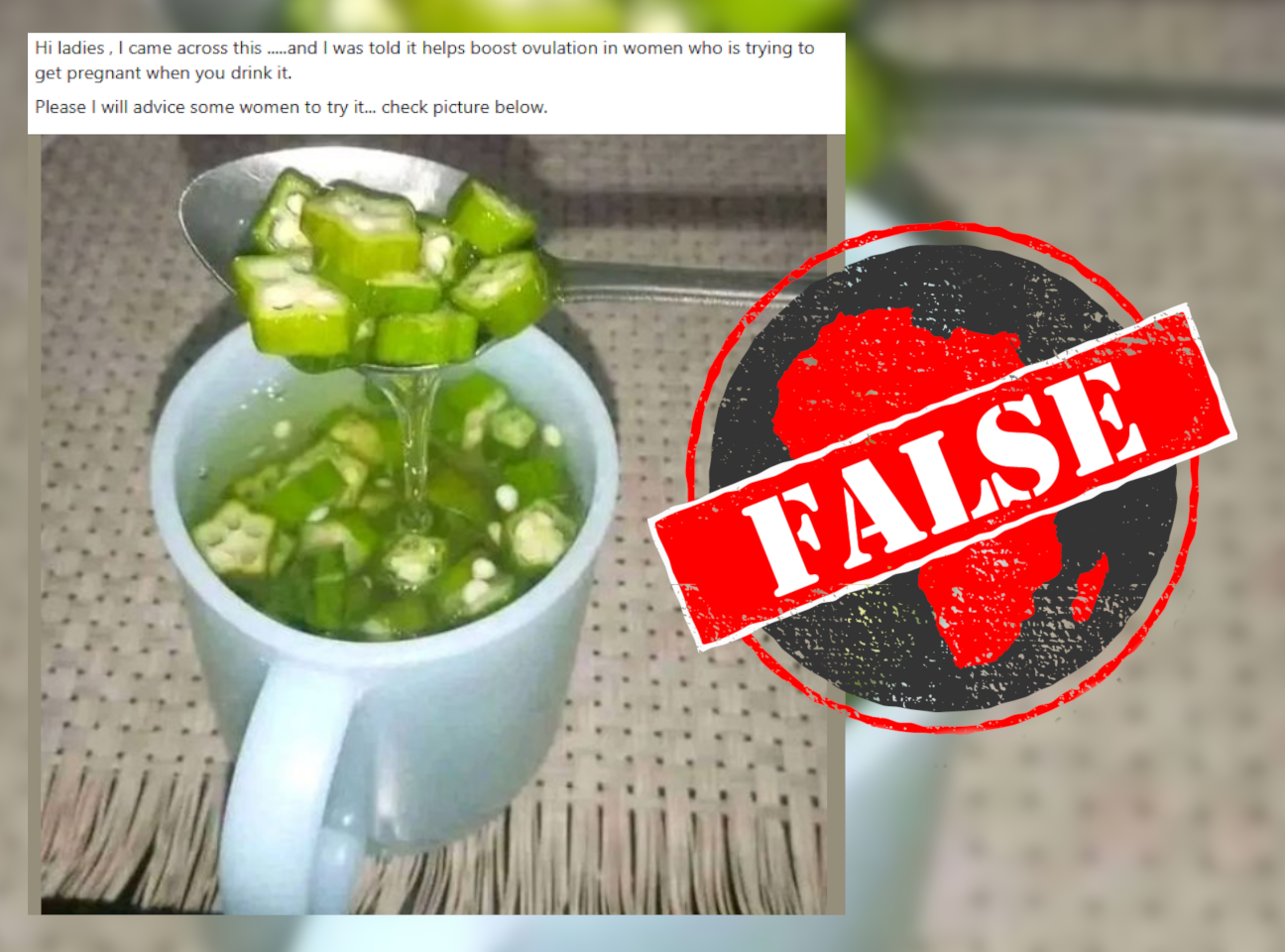IN SHORT: Okra is nutritious and has other health benefits. But there’s no proof that it “boosts” ovulation, a natural once-a-month process where a single mature egg is released from a woman’s ovary.
Messages circulating on Facebook in Nigeria claim that drinking water that has had chopped up bits of okra added to it – what some versions call “okra water” – will “boost” women’s ovulation, and so help them get pregnant.
A typical version of the claim reads: “Hi ladies , I came across this .....and I was told it helps boost ovulation in women who is trying to get pregnant when you drink it.”
Okra is part of the mallow family. Its green seed pods are valued as food, although the whole plant can be eaten. And it’s said to be packed with nutrients.

Understanding ovulation and getting pregnant
Ovulation is when a mature egg is released from a woman’s ovary. It happens about once a month.
Pregnancy can occur if a woman has vaginal sex with a man during or soon after ovulation.
For pregnancy to happen, the man’s sperm – produced in his testes and ejaculated from his penis – has to enter the woman’s vagina. The sperm then has to swim up into the woman’s cervix.
From here, a single sperm may fertilise the mature egg.
The fertilised egg is known as a zygote. It travels to the woman’s uterus, where it develops into a foetus and, usually nine months later, a newborn baby.
But can okra dropped in water really increase women’s chances of producing that single mature egg each month?
See a gynaecologist instead
Cyril Dim is a professor of obstetrics and gynaecology at the University of Nigeria Nsukka in Nigeria’s southeastern state of Enugu.
He told Africa Check there’s “no scientific evidence to back up the claim”.
Dim said okra had nothing to do with ovulation. He added that people who struggled to fall pregnant should rather see a gynaecologist.
Africa Check has previously debunked claims that okra treats infertility and other health conditions.
Republish our content for free
For publishers: what to do if your post is rated false
A fact-checker has rated your Facebook or Instagram post as “false”, “altered”, “partly false” or “missing context”. This could have serious consequences. What do you do?
Click on our guide for the steps you should follow.
Publishers guideAfrica Check teams up with Facebook
Africa Check is a partner in Meta's third-party fact-checking programme to help stop the spread of false information on social media.
The content we rate as “false” will be downgraded on Facebook and Instagram. This means fewer people will see it.
You can also help identify false information on Facebook. This guide explains how.


Add new comment